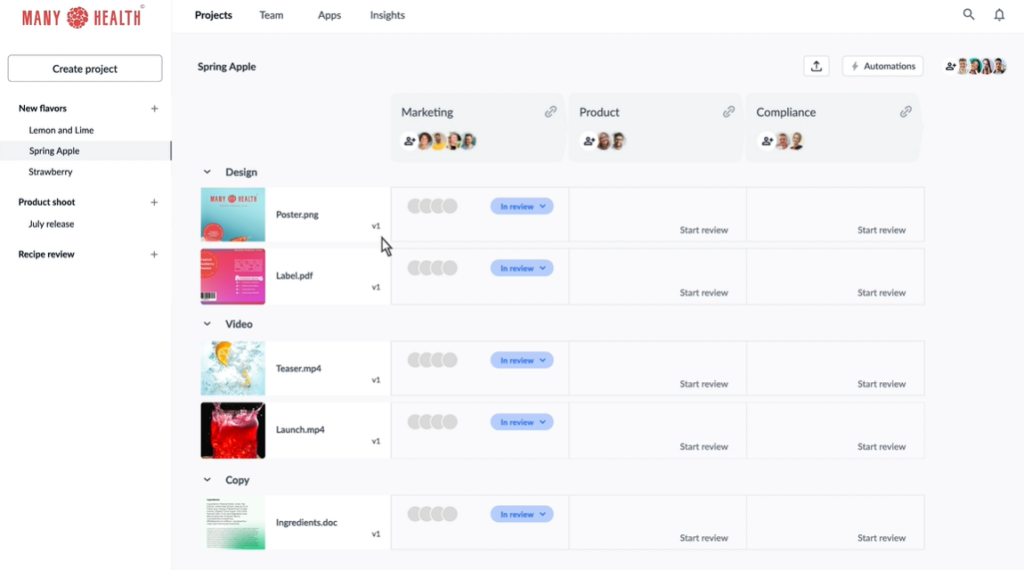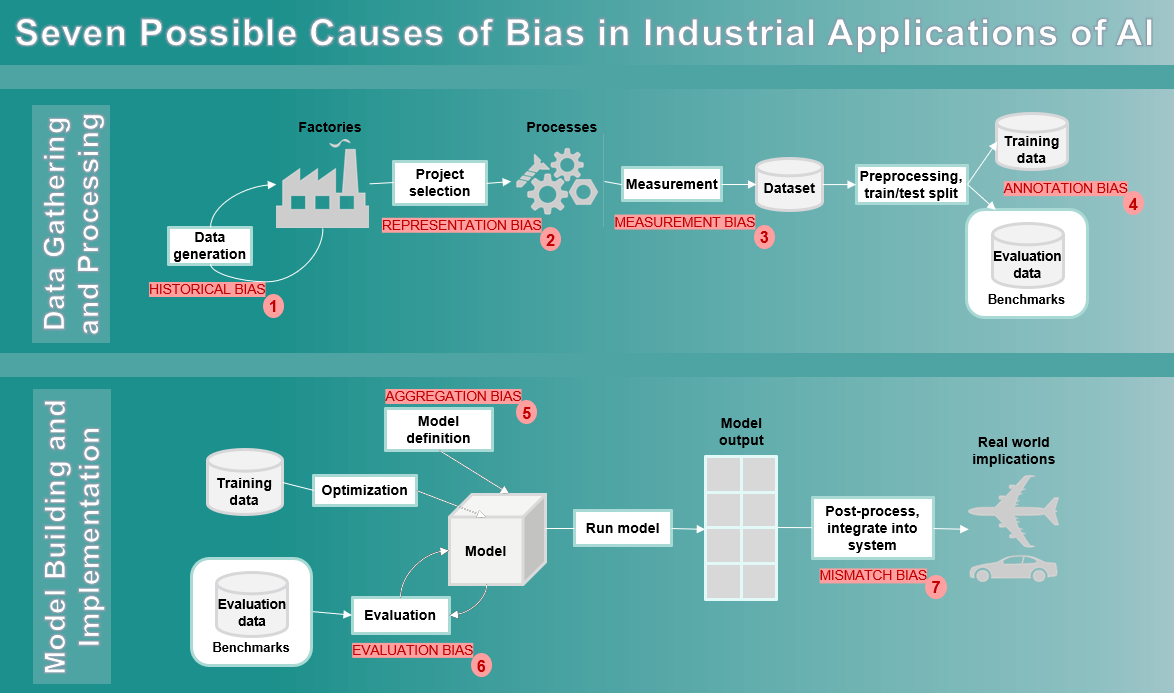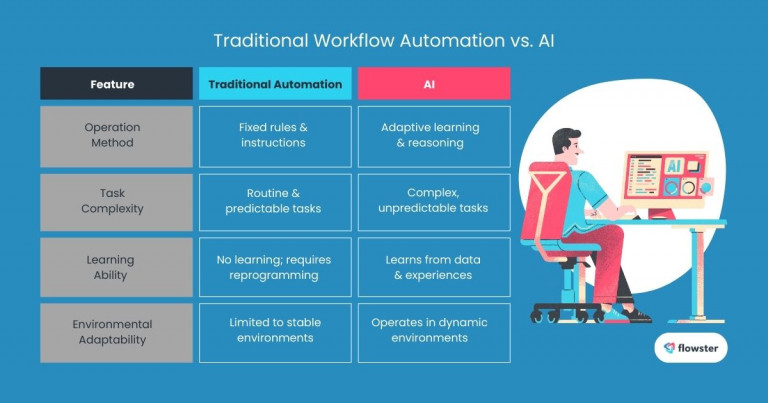In the digital landscape, where the demand for high-quality content continues to surge, content managers and marketing professionals find themselves confronted with increasing challenges in the content approval process. Lengthy review cycles, miscommunication among stakeholders, and inadequate tracking tools can hinder the workflow, leading to missed deadlines and lost opportunities. To mitigate these issues, many organizations are now turning to AI-driven tools that promise to streamline the content approval process, thereby enhancing collaboration and reducing turnaround times.
AI-powered content approval tools offer automation for repetitive tasks, assist in tracking version control, and ensure adherence to compliance and branding standards. By utilizing advanced algorithms, these tools can detect inconsistencies and errors in content before it reaches human reviewers, significantly speeding up the assessment process. Implementing these solutions not only alleviates the burdens on content teams but also fosters a collaborative environment where feedback is processed seamlessly.
As organizations navigate the complexities of producing a high volume of marketing materials, the evolution of content approval methodologies represents a fundamental shift. Embracing AI technology allows for greater efficiency and clarity in strategic decision-making. This article explores how AI-driven tools optimize content approval processes, reducing delays, improving collaboration, and paving the way for future innovations.
Revolutionizing Content Approval with AI
Content approval processes have traditionally faced delays and inefficiencies. For content managers, the lengthy cycles involved in reviewing materials often lead to missed deadlines. AI-driven tools address these challenges by transforming how teams approach content approval.
AI technologies improve compliance and consistency through automated content analysis. For instance, Filestage employs AI bots to automatically evaluate content for alignment with specified guidelines, as well as to identify prohibited language. This pre-review analysis enables human reviewers to focus on more strategic decisions instead of performing initial compliance checks.
Moreover, AI facilitates automated workflow routing, which directs content to the appropriate reviewers based on established criteria, such as content type or project requirements. This automated process greatly reduces the manual workload associated with assigning reviewers, enhancing productivity by ensuring that the right people assess each piece of content.
Flowchart comparing traditional and AI-driven content approval processes (Source: Flowster)
Through this transformation of workflows, AI-driven tools empower content teams to collaborate effectively and streamline time-consuming manual processes. Enhanced efficiency supports organizations in promptly adapting to changing market conditions, thereby ensuring content remains relevant and impactful.
Streamlining Approvals with Intelligent Features
The advanced functionalities of AI-powered content approval tools, such as those offered by Filestage and Ziflow, provide significant advantages for content teams. By incorporating specific AI capabilities, these platforms enhance the content review process.
First, AI-powered content analysis removes potential compliance risks early within the workflow. For example, Filestage's automated compliance checks enable swift corrections before documents reach reviewers. Meanwhile, smart version comparison features allow users to quickly identify changes between document iterations, a crucial aspect when handling complex content.
Additionally, intelligent commenting and annotation systems streamline feedback by categorizing and prioritizing comments. Ziflow's AI tools, for example, assist in suggesting responses to feedback, allowing reviewers to focus on critical points rather than sorting through a backlog of comments.

Screenshot of Filestage showing AI functionalities for content approval (Source: The Digital Project Manager)

Screenshot of Ziflow showing AI content approval features and tools (Source: Ziflow)
Collectively, these intelligent features facilitate smoother approval workflows, fostering an environment conducive to collaboration. By improving user experiences and reducing workloads, organizations position themselves to produce high-quality content more efficiently.
Enhancing Collaboration with AI Tools
Collaboration is a cornerstone of effective content approval processes, as feedback from various stakeholders is vital to achieving desired outcomes. AI-driven tools play a significant role in breaking down communication barriers, allowing teams to work together more seamlessly.
Traditional content approval processes often involve back-and-forth communication that can lead to confusion and delays. However, with AI automating routine tasks, stakeholders can concentrate on delivering high-quality feedback rather than on logistics. This efficiency not only accelerates the review process but also enhances the caliber of collaboration.
Success stories abound for companies that have implemented AI solutions to improve teamwork in content reviews. Organizations utilizing automated metadata tagging, for instance, have reported enhanced organization of content, making approved materials readily retrievable for future use. AI enables teams to navigate content repositories efficiently, promoting easy access to prior feedback and fostering a cycle of continuous improvement.

Infographic showcasing collaboration statistics improved by AI (Source: Statista)
By modernizing how teams communicate through AI-driven platforms, organizations empower individuals to leverage their collective expertise, resulting in richer contributions that elevate overall quality.
Maximizing Efficiency with AI in Editorial Calendars
Effectively managing editorial calendars is critical for content managers responsible for delivering timely content. AI tools provide profound solutions that optimize this vital aspect of content marketing.
Integrating AI within editorial workflows facilitates predictive analytics, allowing teams to forecast content performance and pinpoint potential bottlenecks. By analyzing historical approval patterns, teams can allocate resources more effectively, thereby keeping projects on schedule. Additionally, tools that automate scheduling and task assignments reduce the burdens associated with manual management.
For example, AI can autonomously resolve common scheduling conflicts, allowing managers to prioritize strategy over mere organization. The efficiencies gained through automation can lead to significant time savings across editorial operations.

Calendar visualization demonstrating AI integration in content scheduling (Source: CoSchedule)
With streamlined editorial processes driven by AI technology, content teams can respond to emerging trends and deadlines with increased agility, enabling organizations to capitalize on market opportunities effectively.
Addressing Ethical Considerations in AI Content Approvals
Although the advantages of AI tools in content approvals are significant, ethical considerations regarding their implementation must be addressed. Content managers should remain vigilant about potential biases, transparency issues, and privacy concerns associated with AI systems.
Bias can arise in AI systems when training data reflect historical prejudices. Such biases may inadvertently influence content approvals, negatively impacting certain demographics. Organizations must regularly audit their AI models to uncover and correct biases that may emerge, which underscores the importance of using diverse and representative training datasets.
Furthermore, human oversight is essential for navigating the ethical complexities associated with AI. While AI can assist with fundamental tasks, ensuring accountability is crucial. This dual approach allows AI to enhance human insight rather than replace it, ultimately promoting ethical content approval processes.

Flowchart illustrating mitigating bias in AI systems (Source: Siemens)
Organizations should prioritize transparency regarding their AI tools, striving to provide clear frameworks for understanding AI-driven decisions. By elucidating training methodologies and decision-making processes, stakeholders can foster trust in the outputs generated by AI systems.
Integrating AI with Existing Systems
The successful integration of AI-driven tools within existing content management systems (CMS) is vital for ensuring streamlined workflows. Understanding available integration techniques enhances the likelihood of successful implementation.
API integration represents one of the most effective methods for merging AI tools with existing systems. This approach allows for seamless data transfer and enables AI functionalities to operate directly within the CMS. Organizations also explore middleware solutions to bridge gaps when direct integration proves challenging, facilitating synchronization between disparate systems.
However, integration is not without its challenges. Compatibility issues can emerge, especially with legacy systems that may require extensive modifications to accommodate AI-driven functionalities. Additionally, the introduction of new tools can disrupt established workflows, necessitating thorough change management and user training.
Diagram representing integration workflows between AI tools and CMS (Source: Slickplan)
To address these challenges effectively, organizations are encouraged to involve stakeholders in the integration process from the outset and provide comprehensive training to ensure a seamless transition. Taking these steps can cultivate a company culture that embraces technological advancements while mitigating potential disruptions.
Looking Ahead: Trends in AI-driven Content Approvals
As AI continues to reshape content approval processes, emerging trends and technologies are poised to enhance workflows further. Innovations in natural language processing (NLP) and machine learning (ML) are anticipated to drive a new wave of improvements.
Future AI-driven content approval systems are predicted to develop superior contextual understanding, allowing them to interpret content nuances and cultural references more effectively. Furthermore, advances in multimodal content analysis will enable the simultaneous evaluation of text, images, and audio, leading to more comprehensive assessments.
Real-time processing capabilities are also expected to become more prevalent, facilitating instantaneous content moderation that can analyze context and sentiment to determine appropriateness. Such advancements could significantly streamline content review cycles, thereby reducing delays.
Futuristic graphic depicting AI innovations in content management (Source: LinkedIn)
The future of AI-enhanced content approvals promises to alleviate bottlenecks currently present in today’s processes. By integrating advanced predictive analytics, organizations can improve content planning and resource allocation, positioning themselves for success in an increasingly competitive environment.
Conclusion
Integrating AI-driven tools into content approval processes signifies a significant shift from traditional methods. For content managers and marketing professionals, embracing these resources presents an opportunity to enhance productivity, reduce delays, and improve collaboration among teams.
By leveraging functionalities such as automated analysis, intelligent feedback systems, and predictive analytics, organizations can effectively address the challenges presented by modern content production. However, attention to the ethical considerations associated with AI implementations is necessary, emphasizing the importance of transparency and human oversight.
As the content landscape continues to evolve, organizations must remain proactive, adapting to emerging challenges while harnessing AI to achieve their goals effectively. By embracing this technological pivot, companies can be better positioned to thrive in a dynamic and competitive industry.



கருத்துக்கள் (0)
உள்நுழைக சர்ச்சையில் பங்கேற்க அல்லது .